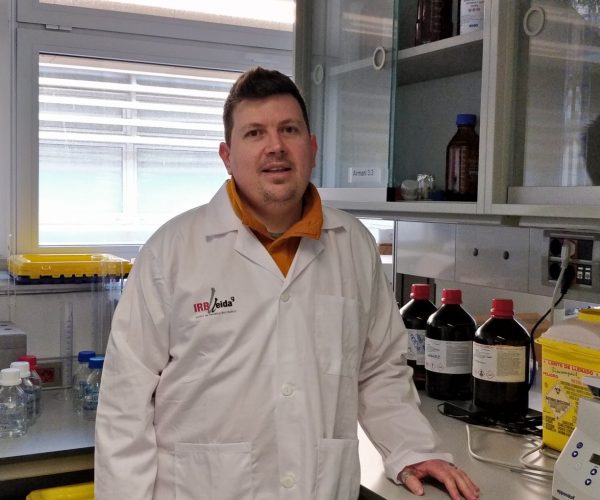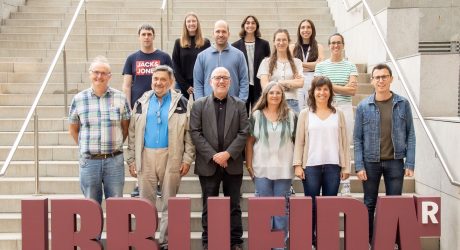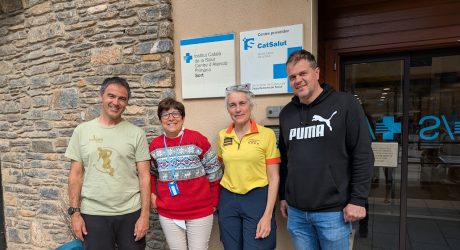New research with Lleida’s participation will change the approach to patients with dementia caused by the rare disease CADASIL
This minority disease adds to the dementia of ageing and has no treatment available
CADASIL is an inherited disease of the blood vessels that occurs when thickened blood vessel walls block blood flow to the brain. It is a minority disease with no current treatment. New research, with Lleida’s participation, will change the clinical approach to patients with dementia caused by the rare disease CADASIL (an acronym for Cerebral Autosomal Dominando Arteriopathy with Sub-cortical Infarcts and Leukoencephalopathy).
“This study opens the door to treat these patients with anti-inflammatory NSAIDs, such as aspirin, ibruprofen or naproxen, among others, from the genetic diagnosis, as well as to create new therapies based on antibodies for these patients,” explained the first author of the article, professor at the University of Lleida and head of the +Pec Proteomics research group at IRBLleida, Xavier Gallart Palau.
The research has recently been published in the journal Acta Neuropathologica Communications. The study was led from Newcastle University in England by Raj N. Kalaria, one of the world’s leading experts in the field of cerebrovascular pathology related to dementia in aging, in collaboration with the Karolinska Institute in Sweden, the National Centre of Geriatrics and Gerontology in Japan, the National Cerebral and Cardiovascular Centre in Japan, the Hamburg Institute of Neuropathology in Germany, St. George’s University in London, Brock University in Canada and the University of Turku in Finland.
The research has focused on the study, using methods based on proteomics and immunohistochemistry techniques, to explore the extent of inflammatory and immune responses in subjects with CADASIL compared to an age-matched group of people without the disease and other diseases. “Our data support the role of inflammation in the disease and given that there are localised low-grade inflammatory responses in CADASIL, therapeutic measures that can reduce or diminish them with, for example, non-steroidal anti-inflammatory agents, could be beneficial for patients,” Gallart said.
This research was funded by the Gun and Bertil Stohne Foundation, the Olle Engkvist Byggmästare Foundation, the Foundation for Gamla Tjärnarino, the Carlos III Institute of Health, European Union Funds: European Social Funds+, the National Institute of Neurological Disorders and Stroke and the US National Institute on Aging, the UK Medical Research Council, the Newcastle Centre for Brain and Vitality Ageing and Alzheimer’s Research, the UK MRC, the Newcastle Centre for Biomedical Research in Ageing and Age-Related Diseases and a grant from the Alzheimer’s Society and ART.
Article: Panahi, M., Hase, Y., Gallart-Palau, X. et al. ER stress induced immunopathology involving complement in CADASIL: implications for therapeutics. acta neuropathol commun 11, 76 (2023). https://doi.org/10.1186/s40478-023-01558-1




